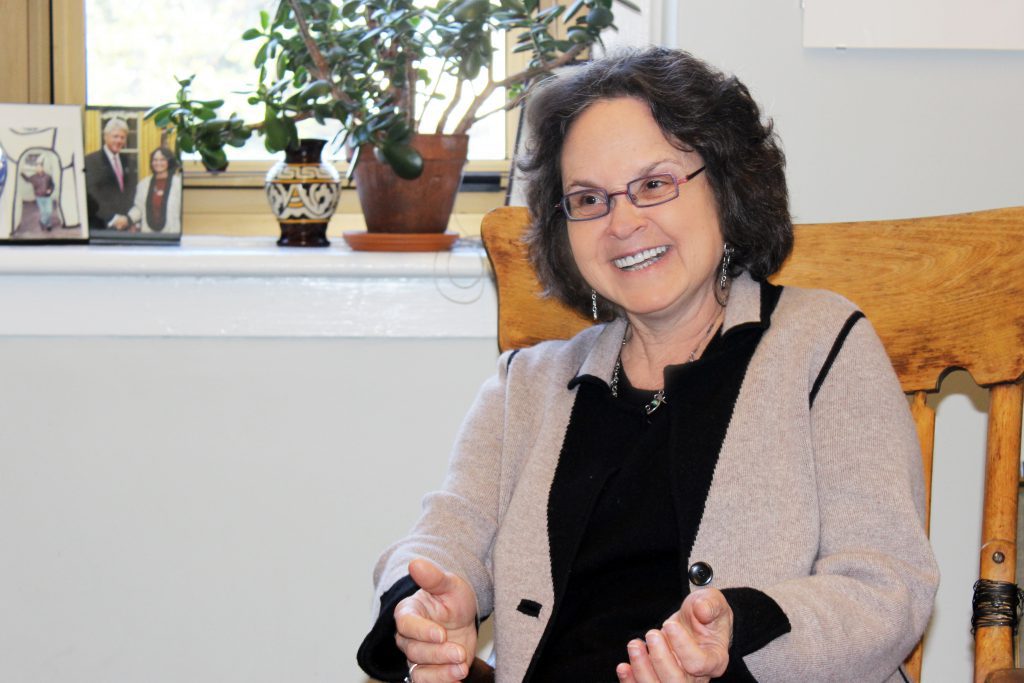Leslye Orloff remembers clearly one of her first days at Ayuda. “It was 1985, and I walked into the waiting room. It was full of men,” she said. “The services were mostly focused on immigration options for the male head of households.” Little attention had been paid to the thousands of immigrant women and children who needed access to legal immigration status independent of their abusive spouse, parent, or partner so they could flee abusive homes, receive protection from deportation, gain economic independence and rebuild their lives.
Orloff would change all that. In the next few years, she founded and directed Ayuda’s Clinica Legal Latina – a comprehensive legal and social services program for low-income immigrant women and children who are victims of domestic and sexual violence.
Orloff, a family law attorney, recruited “lots of interns,” and other volunteers and worked with Ayuda’s expert immigration attorneys. “Back in the ‘80s, there we no interpreters in the D.C. court system. Our clients couldn’t call the police for help because there were no Spanish speakers there either,” she said.
Instead, clients would call Orloff directly. Orloff, who is bilingual, called the police, picked up an interpreter, and arrived at their homes to meet the officers, translate the circumstances, advocate for the clients, then help get protective orders, child custody, housing, food, clothing – whatever was needed.
“Ayuda was one of the few organizations in the country representing battered immigrant women,” Orloff said. “There simply weren’t any other resources.” Through Clinica, Ayuda offered a range of social services along with legal help, which became the model for the holistic programming that makes Ayuda unique today.
Orloff worked tirelessly. In her 14 years at Ayuda, she also served as director of the national policy program and director of program development. All told, she litigated some 800 cases and settled thousands more, impacting tens of thousands of lives.
“The names fade,” Orloff said, but the images are vivid. She cites one especially memorable case in which an abusive husband had taken the couple’s child. Orloff arrived at his residence along with the police, served the husband papers, and carried the six-month-old out of the house in her arms to return the baby to her mother. Years later, Orloff ran into the mother, who introduced “abogada (lawyer) Leslye” to her now 26-year-old daughter – the child Orloff had carried to safety decades before. “It was just beautiful. Just amazing,” she said.
In addition to programing, Orloff helped shape national domestic violence policy – raising Ayuda’s profile around the country. Her engagement gave the organization a seat at the table in developing the National Network to End Violence Against Immigrant Women, in writing battered spouse legislation in 1990 and the Violence Against Women Act in 1994. This year, because of Orloff’s seminal work more than two decades ago, Ayuda provided services and therapy to 149 domestic violence survivors and won approval for 158 Special Immigrant Juvenile Status cases for abandoned, abused, or neglected children.
Providing these victims the support they need to rebuild their lives makes the work worthwhile, Orloff said. “Ayuda’s services make the difference between lives that are in tatters and successful lives in which people become active, successful members of our community. I’m proud to have been part of it.”

Leslye E. Orloff is the Director of the National Immigrant Women’s Advocacy Project (NIWAP) at American University Washington College of Law
Lesly founded and directed Ayuda’s Clinica Legal Latina – a comprehensive legal and social services program for low-income immigrant women and children who are victims of domestic and sexual violence. This piece was written in 2017 for Ayuda’s 45th Commemorative report.


